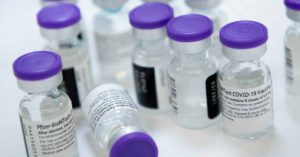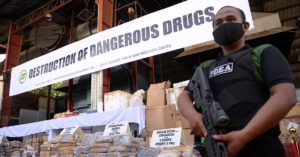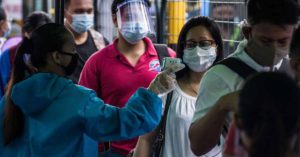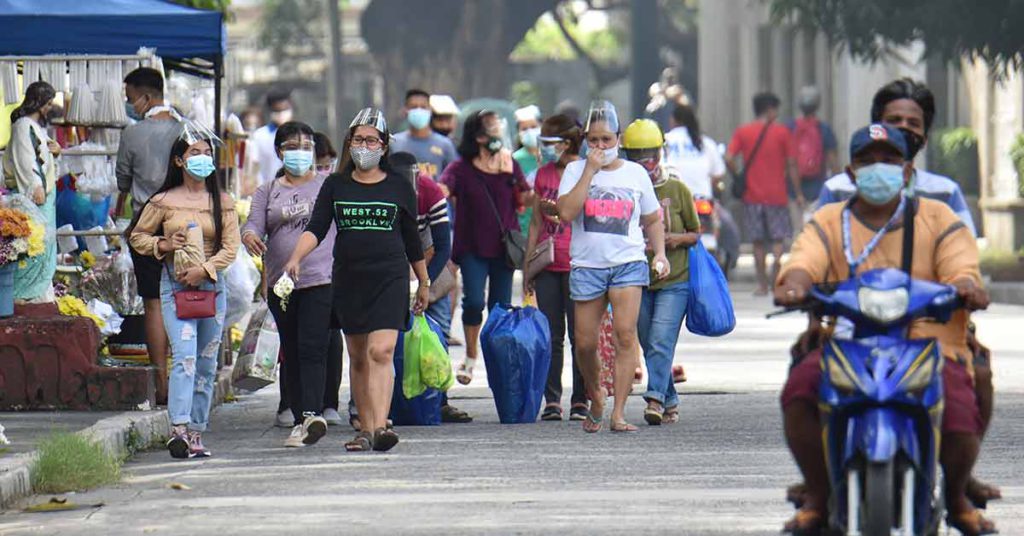
The breakthrough in the development and availability of COVID-19 vaccines is a leap forward in the fight against the COVID-19 pandemic. This positive development brings hope to the world. The availability of the COVID-19 vaccine does not only inspire the world that indeed the battle against the coronavirus pandemic can be won but it brings the world a step closer to ending this global crisis as countries around the globe are rolling-out and implementing their respective COVID-19 vaccination programs.
Vaccination Program
Just like the rest of the world, the Philippines is also eager to roll-out and implement its national COVID-19 vaccination program. According to Secretary Carlito Galvez, the country’s COVID-19 vaccine czar, the Philippines will start its COVID-19 vaccination program this February upon the arrival of the 50,000 doses of Sinovac vaccine in the country.
This is aside from 15,000 doses of Sinovac vaccine that will be used for clinical trials in the country. By February, it is expected that around 65,000 Filipinos will be initially inoculated. The Philippines thus far was able to secure 25 million doses of the COVID-19 vaccine developed by China’s Sinovac Biotech. Accordingly, after the initial 50,000 doses, the rest of the Sinovac vaccines will arrive in batches from March till December of this year.
Aside from Sinovac, the Philippines has also secured 30 million doses of Covovax, which is expected to arrive in the country around the third quarter of 2021. The delivery of the Covovax vaccine will take place in July, August, and September. Though the deal was only for 30 million doses, Novavax is expected to supply up to 40 million doses through the COVAX facility.
The Philippines has also secured around 2.6 million doses of the AstraZeneca vaccine which is expected to arrive in the second quarter of the year. The Philippine government is also continuously negotiating with other pharmaceutical companies including Pfizer, Johnson & Johnson, and the Gamaleya Institute.
It hopes to secure around 40 million doses from Pfizer, while AstraZeneca and Russia’s Gamaleya are ready to supply around 25 million doses, respectively. Moderna on the other hand is allocating between 15 to 20 million doses for the Philippines.
According to Galvez, the Philippines has already secured over 100 million vaccine doses that were negotiated at a lower price – 300 percent lower than published market prices. Galvez also emphasised that all negotiations on the procurement of COVID-19 vaccines from different manufacturers are very successful and are now in the final stages of the supply agreement.
Tripartite Agreement With LGUS
Likewise, several local government units (LGUs) have secured COVID-19 vaccines for their respective constituents through the tripartite agreement between the national government, vaccine manufacturers and themselves. This tripartite agreement is important to maximise manpower, expertise, and resources to ensure a coordinated, integrated, and holistic COVID-19 immunisation program in the country.
The said agreement also aims to provide unified and synchronised efforts among the government, LGUs, and vaccine developers, to ensure the acquisition of sufficient doses of COVID-19 vaccines for the country.
Hence, all these are positive developments for the Philippines which is hoping to inoculate around 60 to 70 percent of the country’s population in 2021 to achieve herd immunity.
Herd immunity is a form of indirect protection from infectious disease that occurs when a sufficient percentage of a population has become immune to an infection, whether through vaccination or previous infections, thereby reducing the likelihood of infection for individuals who lack immunity.
Who Will Be Vaccinated First?
The Philippine government will employ both, geographical and sectoral considerations in the distribution of COVID-19 vaccines in the country. Areas like Metro Manila, Metro Cebu, and Metro Davao where COVID-19 cases are high will be prioritised as part of the geographical considerations. The sectoral considerations will include prioritising the vulnerable sections of the population, referring to the segment of Philippine society who are at high risk or the most vulnerable to protect them and to prevent the spread of COVID-19.
Also, the priority population that will be among the first to be inoculated include frontline health workers, the poor (indigents), uniformed personnel, workers, teachers, social workers, government workers, and essential workers outside of the health, education, and social welfare sectors, for example, those working in the agricultural, food, tourism and other sectors that have direct contact with people; then overseas Filipino workers (OFWs), and all remaining workers and citizens.
Vaccine Hesitancy And Paranoia
Nonetheless, the challenge at the moment is to raise the level of trust, confidence and to convince Filipinos not to hesitate to be inoculated given the latest result of a survey conducted just recently saying that less than a third of Filipinos were willing to get vaccinated.
The recent national survey by Pulse Asia Inc. conducted from 23 November to 2 December, 2020, showed that only around a third or 32 percent of the 2,400 Filipinos aged 18 and above surveyed are willing to get inoculated, while almost half of Filipino adults (47 percent) are not inclined to get the COVID-19 vaccine, and the rest (21 percent) are ambivalent on the matter of being vaccinated or not. The survey cited safety as the leading reason why almost half of Filipino adults polled are not willing to get vaccinated.
Other reasons cited include the cost of the vaccine and whether or not vaccination is required to combat COVID-19. This only goes to show that there is “vaccine hesitancy” and paranoia among the Filipino public. This could result in a delay in the acceptance or refusal of safe vaccines despite the availability of vaccination services.
However, vaccine hesitancy and paranoia among Filipinos is understandable and can be traced back to the trauma and paranoia brought about by the Dengvaxia vaccine scandal, which have harmed other vaccination programs including the impending COVID-19 vaccination program which is to start next month (February 2021).
It can also be attributed to massive fake news, misinformation/disinformation, misleading information, and half-truths about COVID-19 vaccines especially against those vaccines developed and manufactured by the Chinese.
All these to a greater extent have somewhat instilled fear, apprehension, and confusion in the hearts and minds of Filipinos, aggravating further the level of vaccine hesitancy and paranoia in the country.
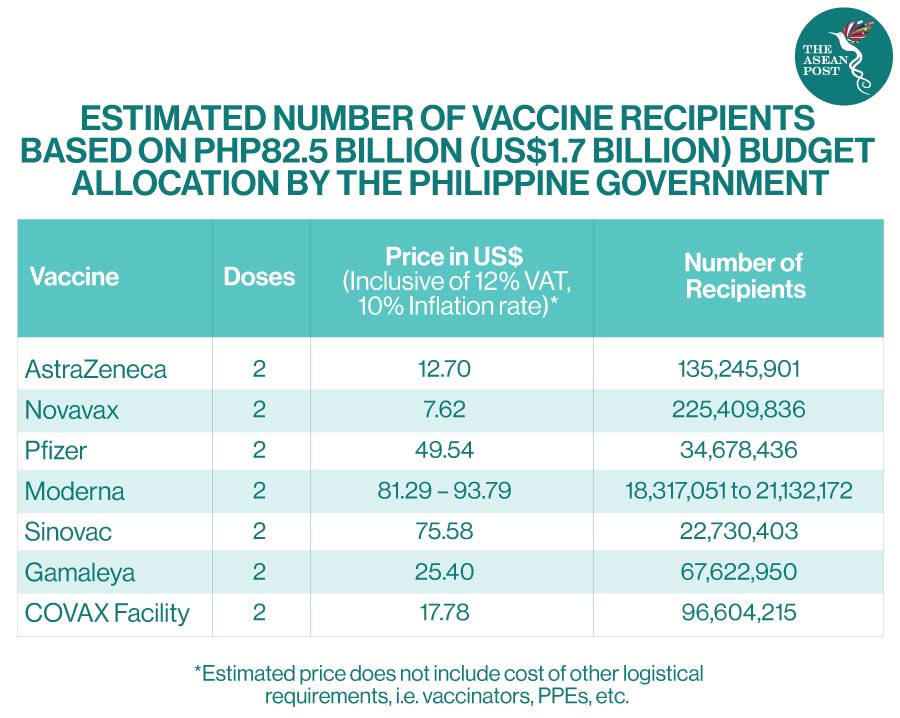
Importance Of Vaccination
Nevertheless, it is but imperative for Filipinos to understand that it is only by getting vaccinated that one may protect oneself and other people around him/her from getting infected by the coronavirus, especially those with co-morbidities who are most vulnerable, and those who belong to the elderly population who are at risk of developing severe or critical illness from the coronavirus.
The Filipino public must understand that it is only through vaccination that the spread of the virus can be controlled and contained. Only a successful vaccination program can help the country recover and finally win the fight against the COVID-19 pandemic.
Likewise, for the national vaccination program to be successful, it is important for Filipinos to have faith and confidence in the Philippine government that it is doing its best to procure vaccines regardless of brand names that are not only cost-efficient but highly effective.
Filipinos should be cognizant of the fact that all vaccines that enter the country will go through rigorous checking, careful evaluation, and painstakingly thorough regulatory review procedures by a panel of experts and by the Food and Drug Administration (FDA) even before they are given authorisation or approval for use to ensure safety and efficacy.
Filipinos must trust the process and experts who are in charge of ensuring that all the vaccines regardless of brand names and countries of origin will be safe and effective even before inoculation.
Similarly, Filipinos should also ignore political personalities who are politicising the issue of COVID-19 for their own political and personal interests by spreading half-truths and misleading information not based on solid scientific facts but rather based on rumours.
Furthermore, Filipinos should take comfort from the fact it is no less than President Rodrigo Duterte himself who assured the Filipino nation that when it comes to vaccines, the safety of any COVID-19 vaccine that is to be administered to the Filipino people is the top priority of his administration.
Duterte has assured the country several times over that all COVID-19 vaccines used for inoculation will be safe, sure, and secure.
Conclusion
Without a doubt, wearing face masks, face shields, frequent washing of hands, and social distancing, significantly reduce the chance of being exposed to the COVID-19 virus or spreading it to others. However, these minimum public health measures are not enough if a country wants to be free from the COVID-19 pandemic.
A COVID-19 vaccine is of the essence if the Philippines is to win the battle against the coronavirus pandemic. The combination of getting vaccinated and observing the minimum public health measures against COVID-19 is still the best way to ensure protection against COVID-19 and the way forward to win the fight against this deadly pandemic.
One must be cognizant of the fact that stopping a pandemic requires using all available remedies and tools at the disposal of the government. And since, COVID-19 vaccines regardless of brand names are already available, then Filipinos must take advantage of this positive development.
Hence, Filipinos should not only support but most importantly participate in the national vaccination program of the Philippine government against COVID-19 for it is the safer way to ensure and build protection among Filipinos. The COVID-19 vaccine thus far is the most viable and only potent tool available at the moment that will help stop the pandemic.
On another note, the Philippine government, concerned agencies, and officials must intensify efforts to educate the Filipino public regarding the safety and effectiveness of any COVID-19 vaccine that will enter the country through mass education programs, awareness-raising campaigns via various media platforms including the various social media platforms to overcome fear, apprehension, and confusion and to counter the spread of fake news about COVID-19 vaccines.
Considering the scale, scope, and importance of the issue, all government and non-government health care authorities and officials must work together in an effort to regain the trust and confidence of the Filipino public with regards to vaccines. This is crucial to the success of the government’s impending roll-out of the COVID-19 vaccination program.
Source: The ASEAN Post
https://theaseanpost.com/article/philippines-roll-out-covid-19-vaccines

